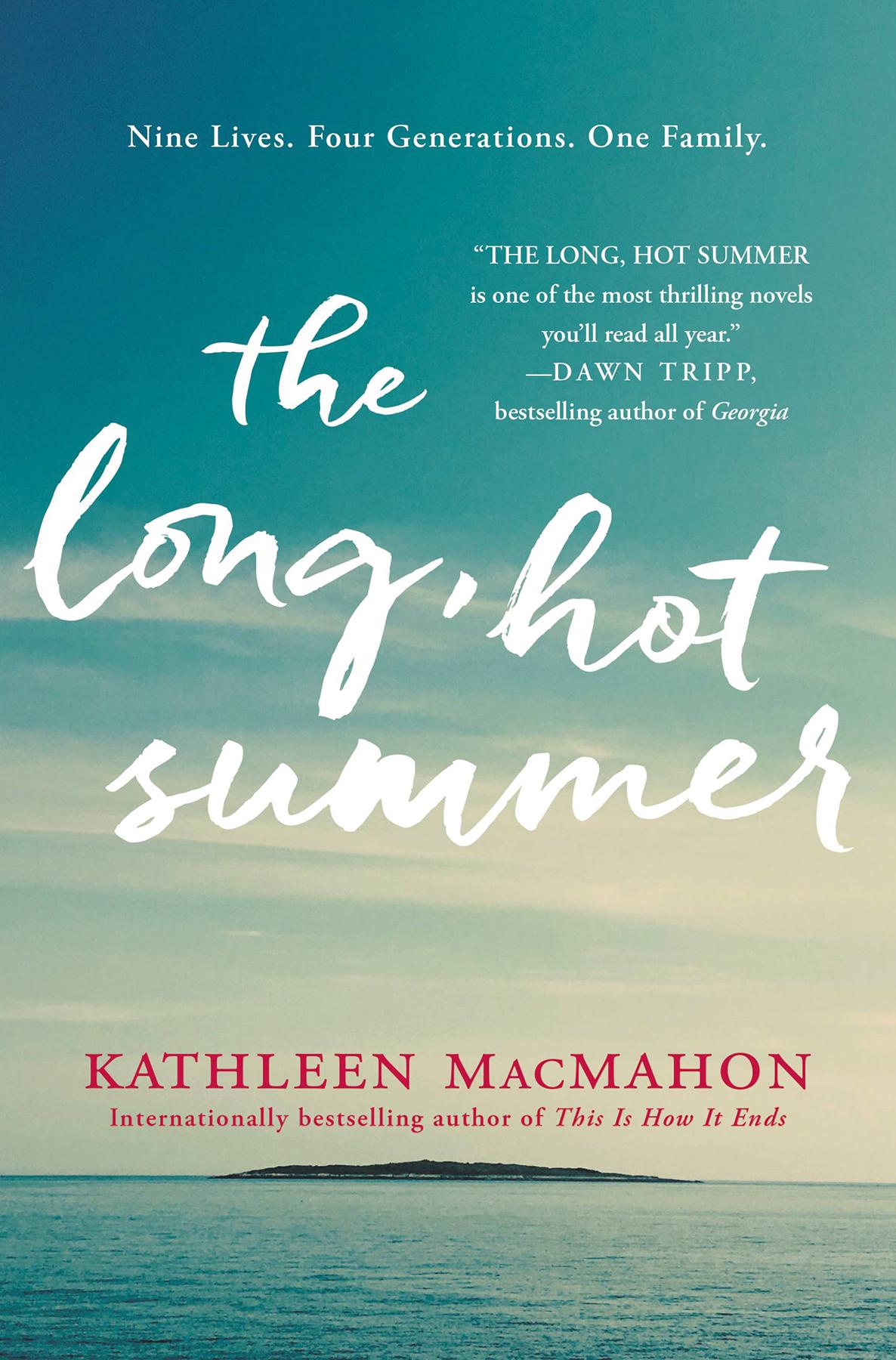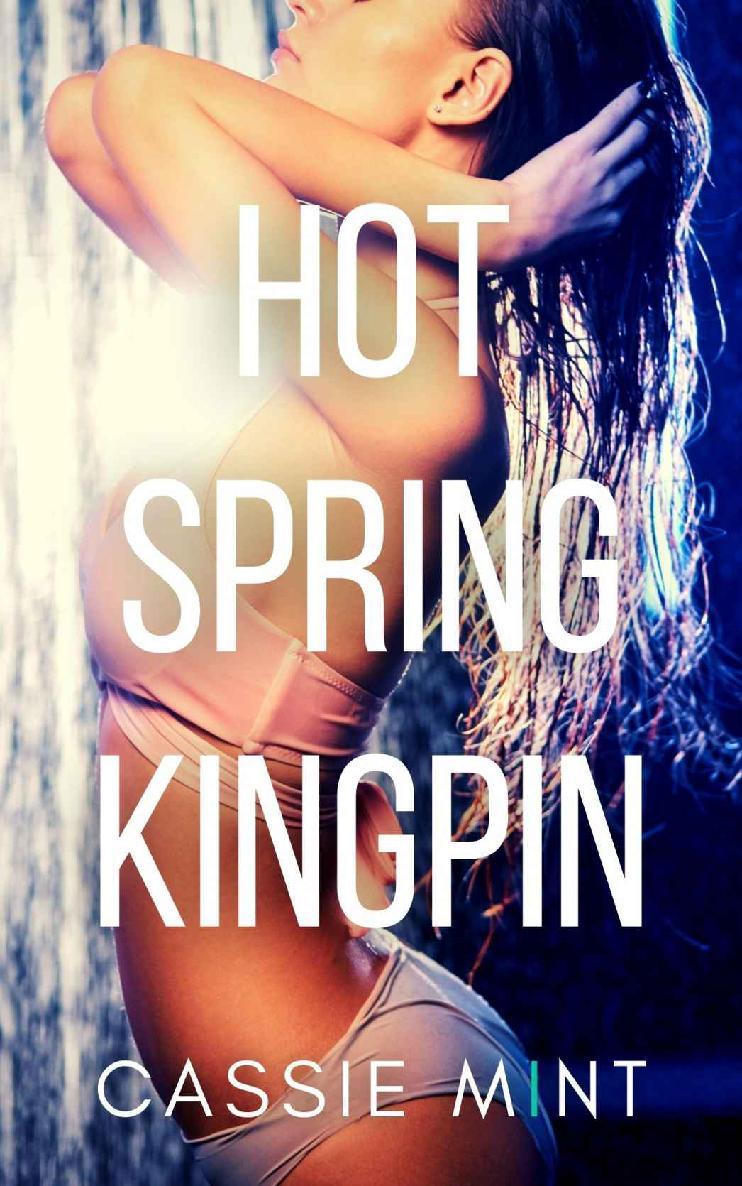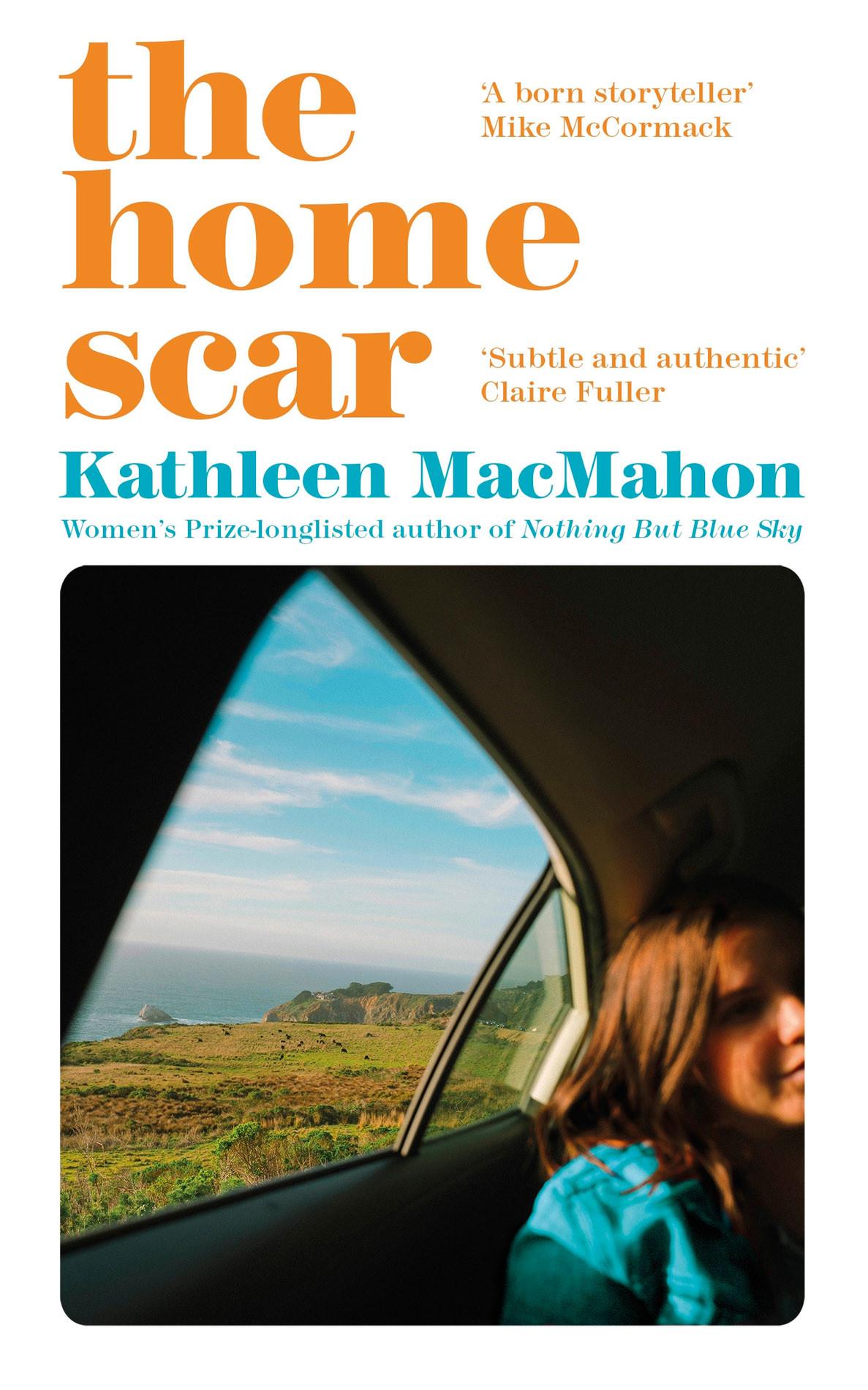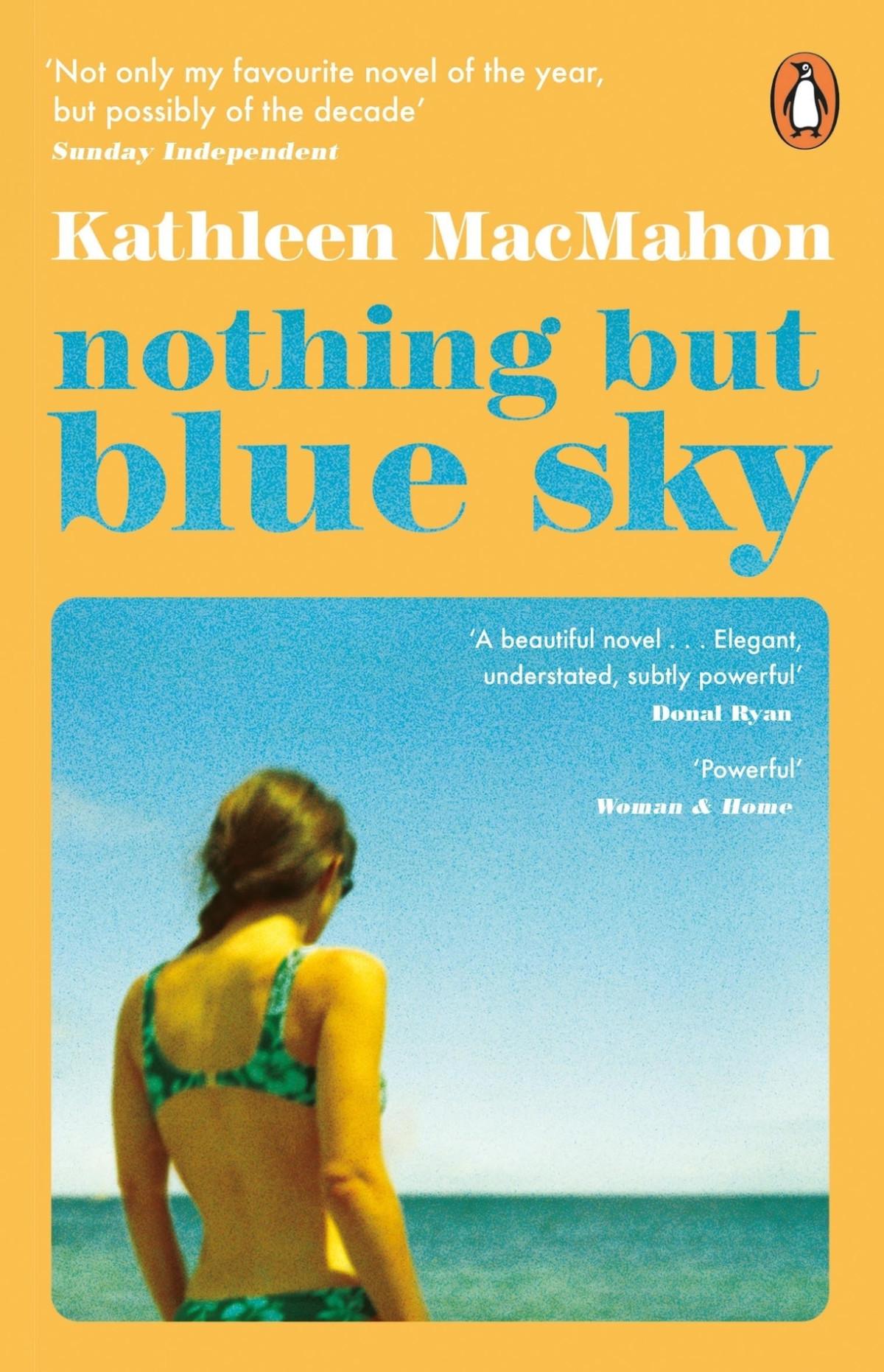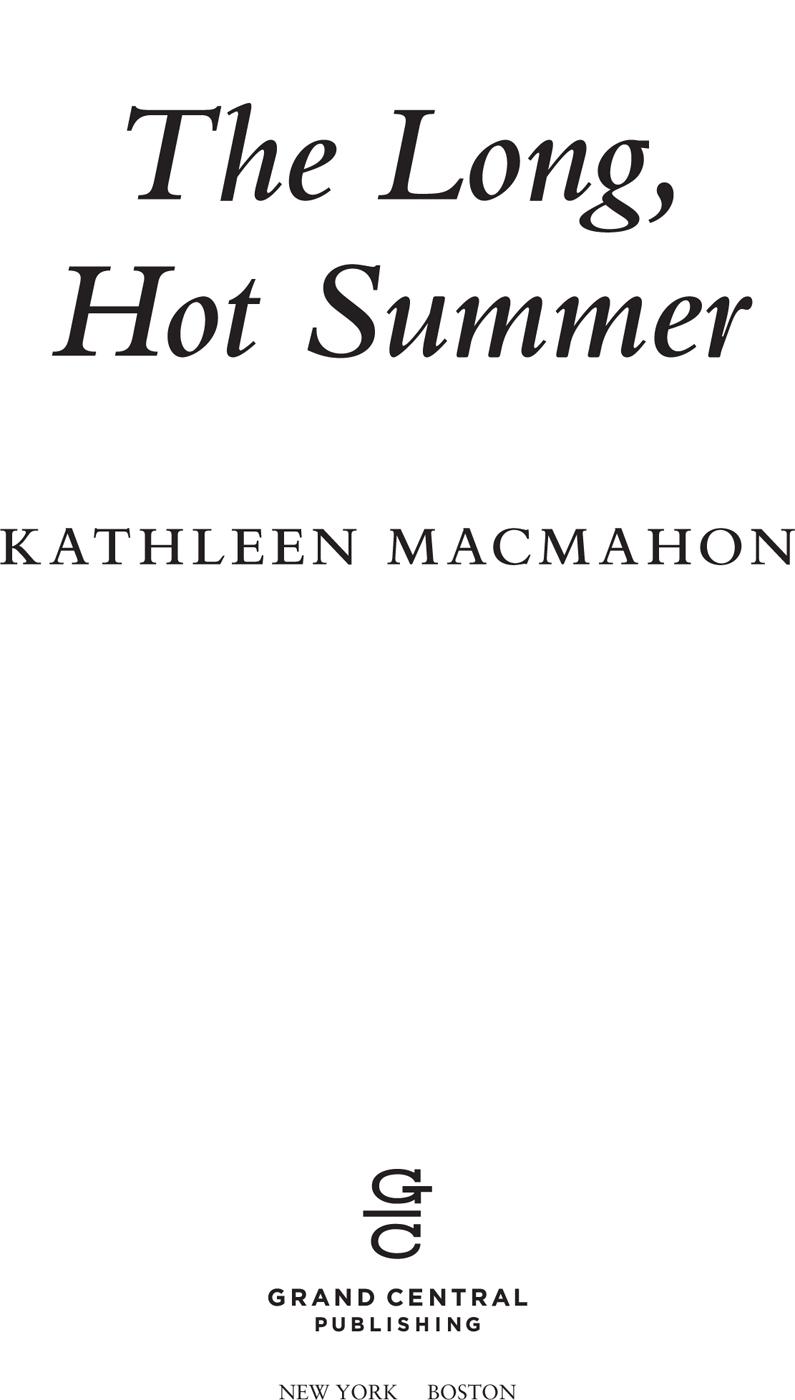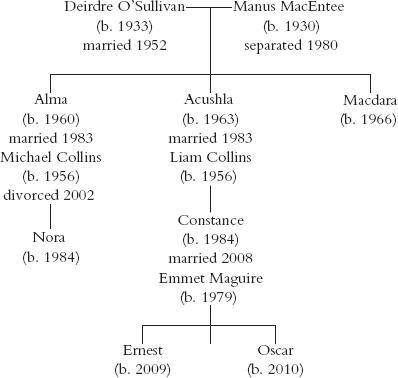Prologue
The story of their lives was all there.
Sandwiched between two battered green leather covers, on a hundred pages of charcoal paper, a bulging patchwork of newsprint, starting on the first page with the engagement notice Deirdre had snipped out of TheIrishTimessix decades ago, the paper tobaccocolored now with age, the typeface a faintly quaint relic of a bygone age.
Mr. M. MacEntee—Miss D. O’Sullivan
The engagement is announced between Manus, only son of David and Eleanor MacEntee of Kildangan, Co. Kildare, and Deirdre, youngest daughter of Eamonn and Mary O’Sullivan of Ennis, Co. Clare.
That was the first time Deirdre’s name had ever appeared in print. A brief mention, and one that for most of the women of her generation would be the only newsworthy event of their lives. An event as frivolous and short-lived as a single firework on a summer’s night, falling somewhere between the announcement of their birth— if indeed anyone had bothered to announce their birth—and that of their death, however many decades later. In between the two, a farmhouse somewhere along the road. A husband, rising up out of
the bed before dawn and not returning until after dusk. A clatter of children and a couple of hospital stays. A new hat for each special occasion.
So it was for Deirdre’s sisters, but not for Deirdre. Deirdre’s life was always going to be different, something her father seemed to see in her from the start. “The world is full of boring people,” he used to say to her, and Deirdre’s heart would squirm with the secret pleasure of knowing that he was referring to her sisters.
The youngest of five girls, Deirdre was separated by six years from the next sister up. And while the other four were one prettier than the other, with their neat little noses and their dancing brown eyes, Deirdre always stood apart from them. With her long-boned face and her wide full mouth—a mouth with hardly a dip in the bow of the upper lip—she was unusual-looking, or so her father kept telling her. “I’ll let you in on a secret,” he said to her, when she was no more than six or seven. “You’re not a pretty little thing, like your sisters. You’re something far better than that. You’re unusuallooking.”
“You must promise me you’ll never be afraid to be different,” he told her, on more than one occasion. And because Deirdre loved her father more than anyone, because she never for one moment doubted the wisdom of what he told her, she made it her life’s work to fulfill that promise. When she left home for Dublin at just seventeen, it was her father who walked her to the train. He found her a carriage with a nun sitting in it, and before he left her there he presented her with the scrapbook as a parting gift. “All you have to do now is fill it,” he said to her, his voice brisk and brusque. “Not a bother to you, Deirdre O’Sullivan.” As the train pulled away, Deirdre looked back to see him standing on the platform, his arm raised in a rigid salute and tears raining down his cheeks.
That was the morning after the old Abbey Theater burned down. The smell of it in the air as Deirdre’s train pulled into Heuston station, the news on everyone’s lips. The Abbey, gone up in flames! Deirdre rushed up the quays and stood with the crowd gathered to peer at the smoldering remains of the national theater. As the Dublin fire brigade hosed down the rubble, as the players and stagehands
did everything they could to salvage precious relics from the wreckage, Deirdre looked on in despair, imagining that she had arrived in the capital too late to fulfill her dream of becoming an Abbey actress. In fact the fire would prove to be her opportunity.
As she stood on the street outside, a man in shirtsleeves leaned out of an upstairs window and started flinging costumes out on to the street. Deirdre was among the onlookers who helped salvage them, spending the rest of the afternoon pegging wet gowns and uniforms on to a clothesline that had been strung across the empty auditorium. Before the day was out, she had the stage manager on a promise to get her an audition for the Abbey School of Acting; on the day of the audition, he was the one who schooled her in the flowery Irish she would need to impress the theater’s director.
It was as a student of the Abbey school that Deirdre secured her first walk-on part just two months later, playing a nurse in the production of TheSilverTassiethat marked the start of the theater’s long exile on Pearse Street. By the following spring she had her first speaking part, as Nellie the Post in TheRighteous are Bold, a play that scandalized her mother as much as it delighted her father. When the notice appeared in the following day’s IrishIndependent, Deirdre’s father sent the hotel porter out for five copies, one of which Deirdre pasted into her scrapbook, using her fountain pen to draw a wide loop of violet ink around the salient sentence:
Deirdre O’Sullivan delivered a vivid performance as Nellie the Post…
Deirdre leaned in to squint at the small print, but she couldn’t make out the letters. Blurry discs across her eyes; the first one had appeared a year ago in the corner of her left eye and slipped across her eyeball. A partial eclipse that affected both eyes now, so that everything was steeped in sepia, as if the whole world was aging with her.
“You have cataracts,” the doctor had said, when finally she was
persuaded to see one. Turning off his miner’s flash-light, he wheeled backward on his chair with something like glee. “Nothing whatsoever to worry about,” he said. “It’s extremely common at your age. I’m going to refer you to an eye surgeon.”
Spinning his chair round to face his desk, he dropped his chin to his chest and started tapping on his keyboard. Using his middle finger in a stabbing motion, as a pianist would to hit a final, definitive note, he set the printer in motion. It spat out a page, which he handed over to Deirdre with deadly gravity.
“You know what this is?” Deirdre said to him, once she was standing.
He looked up at her expectantly, waiting for her to answer her own question.
“This,” she said, waving the piece of paper at him. “This is the thin end of the wedge.”
The paper she was holding in her hand was a ticket to everything she had always feared. A summons that sooner or later would see her sitting in an ugly armchair in a triple-glazed sunroom in an overheated nursing home, surrounded by other old ladies, and nothing to separate her from them, nothing to make her different. The possibility that her entire personality, and the life she had built on the strength of it, the prospect that all of it might turn out to be nothing more than a notion she had taken upon herself, this was something Deirdre could not bear to contemplate.
As soon as she was out on the street, she slipped the referral letter into the nearest bin. Giddy as a schoolgirl, she sailed along the pavement, holding her umbrella out imperiously to bring an approaching bus to a stop. She climbed on board, brandishing her free travel pass like a police badge, aware of a mischievous sense of her own power. Not since she had boarded the bus from Ennis to Dublin all those years ago, with her money sewn into her knickers for fear of the criminals she might encounter in the city, not since then had she had such a drunken sense of freedom. The fact that she had found a way to escape the ordinary, at this late stage of her life, it was almost like being immortal.
She was only a week in Dublin when she met Manus. Six weeks later they were engaged, and by the following summer they were married. A photograph of their wedding appeared in the Irish Independent’s Wedding Bells column; looking at the clipping now, Deirdre had to bite her bottom lip to stop herself from smiling. Manus looked so camp, it was ridiculous. “How did you not know he was gay?” Deirdre’s daughters had asked her many times over the years. “Darlings,” she had told them, “if I’d known what a homosexual was, I might have recognized him as one. But we neither of us would have had a notion what the word meant. You have to understand how innocent we were. Nobody ever told us anything.”
Manus was a Protestant, which was scandal enough in those days. Of course, he had to convert to marry her. In a gesture of reciprocity, their wedding reception was held not in her hometown but in the long-overgrown walled garden of the estate his father managed in County Kildare. To the horror of Deirdre’s mother, there were no chairs, only rugs laid out on the grass for the guests to sprawl on. When Manus left Deirdre for another man—twenty-eight years and three children later—Deirdre’s mother claimed not to be in the least bit surprised. After what she’d seen of their wedding day, she had long been prepared for the worst.
When Manus left Deirdre, it was a point of pride with her not to react the way everyone expected her to. Everyone expected her to be heartbroken, and humiliated, and of course she was both of those things, but she was damned if she was going to show it. “Manus and I were always more like friends than lovers,” she told everyone she met, aware that she needed to subvert the unspoken suggestion of some sexual inadequacy on her part that might have provoked her husband to seek his thrills elsewhere. “All is fair in love and war,” she told other people, hinting at a broader dimension to her marriage than might have been outwardly apparent. “It’s a great relief to me,” she said, “not to have to put up with him stealing my face creams anymore.”
Such was the force of Deirdre’s ability to create a part for herself, such was the gusto with which she reprised the role year after year,
and decade after decade, that she nearly came to believe it herself. What she almost entirely succeeded in obfuscating, what not even her children guessed at, was the fact that she had never not been in love with him. She had spent her entire life loving a man who could not love her. It was too big a thing to contemplate.
Oh, Manus, Manus, Manus. Every cutting of his was pasted into her scrapbook with such naive pride. Reviews of his novel, and feature pieces written with all the genteel reverence of another age. A blackand-white photograph of Manus sitting at his desk in this very study at the top of the house, with the light from the window falling in on him. In the photograph he has an upright typewriter before him, a sheet of paper primed to receive his next novel, a novel that would never come to be written.
Deirdre was sitting at that same desk now, with the same wintry light falling in through the window, only less of it. In the fifty years that had passed since that photograph was taken, the wisteria she had planted as a young bride had stealthily climbed three floors, immersing the back of the house in a deep green sea of leaves, so that even on the top floor you had the sense of being in an underwater cave. A green gloom over everything, it had the advantage of disguising the dust. The patches of dry rot climbing down out of the ceiling cornices. The bucket in the corner to catch the drip from the leaking roof. Deirdre had long ago given up pouring money into that bloody roof.
She turned the pages of the scrapbook impatiently, passing over articles so well known to her that she didn’t need to read them; they were like familiar fields flashing by the window of a train. The piece about Manus from The New York Times. The photograph of them both posing on the tarmac at Idlewild, he wearing dark glasses and she a ruby-red turban to match her coat; they looked for all the world like movie stars, which was what they almost were.
Turning the next page, she came upon a publicity photograph of herself, and stopped. A photograph of her standing alone onstage in a flowing gown, her chin lifted slightly to display her long, pale neck
to advantage. Her eyes were open wide and artfully vacant, as if she were just an empty vessel aching to channel all the great parts that still lay in store for her. The beauty of her, undeniable by then. Not a small-town beauty like her sisters, but a beauty capable of commanding the national stage. Capable perhaps, even, of conquering the world.
Had she known then that she stood balanced on the brink? Review after review, pasted lovingly into her scrapbook, attesting to her triumphant position as the queen of the Dublin stage. There was talk of movie parts, perhaps a move to Broadway, until the beginning of the end was announced in the form of a tiny patch of newsprint no bigger than a postage stamp; it was attached to the page by a piece of tape as dry and yellow as a flake of old skin.
MacEntee 4 July 1960, at Stella Maris Nursing Home. To Deirdre, wife of Manus MacEntee, a daughter, Alma. Deogratias.
Alma, who arrived in a flurry of numbers. Talk of inches, then ounces. Weeks, then months. All Deirdre wanted to know was when she could go back to work. “See that scar on my head?” Alma would joke in later years, pointing to a chickenpox dent on her left temple. “That’s the mark my mother’s heel made when she was climbing over me to get back on to the stage.” And for a year or two it seemed that motherhood had done nothing to slow Deirdre down. It was only when she fell pregnant again, and sick this time with a morning sickness that lasted all day, only then were her ambitions finally derailed. Reluctantly, she passed up on the part of Brigid in ShadowandSubstance(a part she was a little long in the tooth for, truth be told) and took to the bed to await her deliverance.
Deirdre suffered a collapsed lung giving birth to Acushla, and it took her a long time to recover, and although Manus did insert a birth notice, nobody thought to save the paper when it appeared, so no record exists of Acushla’s birth, much to Deirdre’s regret. There is no record of her father’s death either, an event that occurred on the
same day Acushla was born. Deirdre was too weak to attend his funeral. She cried for a year afterward, two years maybe; she began to think she would cry forever. “Why didn’t you ask anyone for help?” asked Acushla once. “Why didn’t you go to the doctor?” Oh, it was hard to explain. You didn’t ask for help back then. It just wasn’t something you did. “What got you out of it?” asked Acushla, even though she already knew the answer. “Your brother did,” said Deirdre with a smile. “It was your brother got me out of it.”
MacEntee to Manus and Deirdre (née O’Sullivan), a son, Macdara.
Macdara, who is Deirdre’s favorite, according to the girls. As evidence, they cite the fact that the PIN for Deirdre’s bank card is the year of Macdara’s birth. “Don’t be ridiculous,” Deirdre says. “I love all my children equally.” Even though that’s not strictly true. She loves all her children in equal measure, certainly, but not all at the same time, and not in the same manner.
Her firstborn Deirdre loves with a mixture of awe and pride. Alma, who arrived in the world fully in charge of herself; no sooner did she open her eyes than she took command of her surroundings, a command she never once let go. Sometimes it seems to Deirdre that she loves Alma precisely because Alma never asks for her love, and never indicates that she needs it.
Acushla, on the other hand, was born crying out for attention. A fretful baby, she would wake in the middle of the night in need of comfort, a comfort Deirdre did not have it in her to give. Many was the night Deirdre spent walking Acushla around the house in the dead of night, her own helpless tears pooling with her daughter’s to form a puddle of sticky grief in the hollow of her collarbone. The legacy of that awful time is a tenderness between Deirdre and Acushla, a tenderness verging on pity for the misery they shared. It is nothing more or less than another strain of love.
By comparison, Deirdre’s love for Macdara was always miraculously straightforward. From the moment she set eyes on him
in the hospital, she loved him with a love that was as uncomplicated as it was unexpected. By then, she had ceased to hope for anything out of motherhood, but with Macdara’s arrival, after a birth as easy as a bump in the road, she was transformed overnight into an earth mother. Macdara was breast-fed from the start, where the girls had been bottle-fed. Where the girls had been left with nannies, Macdara went everywhere Deirdre went, nestled to her chest in a sling, and at night he crept into the bed between his parents, something the girls would never have been allowed to do.
After Macdara was born, Deirdre did not even contemplate returning to work, determined not to miss a moment of her belated joy in motherhood. It was only when he was dispatched to boarding school that she relaunched her career, enjoying a brief but glorious three years back in the footlights. She was just preparing to go on tour with TheGigliConcertwhen Macdara’s crisis came, a crisis that occurred three weeks into his scholarship to the University of Provence (for some reason never entirely understood by Deirdre, the crisis was triggered by a picture of a hermaphrodite he saw in a book). Macdara’s breakdown was so severe, and the challenge of helping him back to full health so enormous, that Deirdre dropped out of the tour, an act of career sabotage from which there would be no way back. Thirty years later, mother and son are still shuffling around the same space, brushing up against each other’s foibles with a mutual acceptance and an ever-increasing endearment that baffles everyone but themselves. “You’re enabling him,” Alma said to her once. “We enable each other,” Deirdre replied, cutting her off at the pass.
“Mum!”
It was Macdara’s voice, calling up to her. “Do you want tea?”
By the sound of it, he had climbed as far as the landing.
“Please, darling!” answered Deirdre, rising out of her chair to shout her answer, only to feel the familiar lick of pain racing down her right leg. “Sciatica,” the doctor had said. “Again, perfectly normal.” The bladder incontinence Deirdre did not deign to mention
to him, certain in the knowledge that this too would be written off as a normal consequence of aging.
Lowering herself carefully back down into her chair, Deirdre began to speed through the scrapbook, looking for Macdara’s only item of news, after his birth. She skimmed over Alma’s first article for the college newspaper. Alma’s first article for a national newspaper. A front-page photograph of Alma’s wedding to Michael Collins (much was made of the fact that the groom was the youngest sitting deputy in the nation’s parliament. Much too of the name he bore, a name passed down to him by his father despite the irony of naming your son after the dead hero of the opposition—oh how they laughed at the notion of a Fianna Fáil Michael Collins!). The pages that followed were plastered with coverage of Mick’s early political career. His media appearances fast became so numerous that Deirdre had been forced to stop saving them. She took to keeping only those clippings that featured Alma. Alma photographed side by side with Mick at a state dinner. Alma pictured at the edge of a media scrum, microphone in hand. Alma in a full-page interview about the new generation of women making a name for themselves in television.
There was the odd article about Acushla too. A morsel in a gossip column about her engagement to Mick’s twin brother Liam. A picture of her wearing a large hat to Ladies’ Day at the Spring Show. An appearance in a list of Ireland’s best-dressed women. The only time Macdara’s name made it into any form of publication was an entry in his school annual noting that he had triumphed in the spellathon. Deirdre had cut the piece out and dutifully pasted it into her scrapbook, confident that it would be no more than a prelude to greater things. In retrospect, it might have been better to leave it out.
Hearing Macdara’s tread on the landing, she flipped the page.
“Here’s your tea,” he said, coming into the room without knocking. Hunched, the way very tall people often are, he bore the mug of tea forward with all the practiced care of a butler. He was wearing a freshly ironed shirt, as always, and one of the handknitted ties he had learned to make in occupational therapy—he’d
been making them for people as Christmas presents ever since. A Vnecked lambswool sweater and camel-colored cords, and on his feet a pair of Ugg boots. Macdara was very prone to cold feet.
“Scrapbooking?” he asked her, as he set the mug down on the worn leather surface of the desk.
“Yes,” she said, wafting her hand over the open pages. “I was just going to paste in an article on your sister but I got carried away.”
She glanced down at the page in front of her.
“My mother’s death notice,” she said. And there was silence for a moment as they both stared down at it. Macdara was standing on the far side of the desk, so he had to twist his neck so as not to be looking at it upside down.
O’Sullivan, Mary. In her 95th year. Widow of the late Eamonn
“When was that?” asked Macdara, looking up at her. His eyes gray and guileless.
“Nineteen eighty-four.”
He was in France when she died. Both of them know this but neither of them mentions it.
“Thirty years ago,” he says, with surprise.
“Yes,” she replies, but she’s not sure whether he’s referring to his grandmother’s death or the ill-fated stay in France. Or indeed both.
“Well,” he says, cocking his head as if he’s about to say something else. He drifts toward the door with his head still tilted, and the conversation is left hanging. The next thing he’s gone, and whatever it was that he was going to say, it remains unsaid.
Once Macdara is gone, the room seems emptier than it was before he entered it. Deirdre sits for a moment searching the air for some visible change, but there is nothing but a faint hum.
She makes a conscious effort to summon a memory of her mother. A desperate desire in her, to remember her mother as a
young woman—all that comes to mind are frozen images from photographs. The living, breathing memory is that of a bag of bones in a bed. A pair of angry staring eyes. A smell that remains on Deirdre’s breath—despite all the money they spent on the nursing home, there was always that greenhouse smell of human rot. The memory of it horrifies Deirdre. It frightens her, and try as she might, she cannot supplant it. The fact is that her mother lived too long. She outlived even herself.
… deeply regretted by her daughters Margaret (Peggy), Mary, Catherine (Kitty), Maeve and Deirdre.
All of them still alive. Peggy must be ninety-three by now, and Mary ninety-one. Kitty on the verge of ninety. Even Maeve must be eighty-six, which makes Deirdre eighty at her next birthday. A fact that has been passing through her head with increasing regularity since the start of the year. The number is puzzling to her; it seems incorrect.
“I don’t fancy the idea of it,” she confided to her ex-husband recently, thinking that he of all people would understand.
Infuriatingly, Manus just laughed.
“I’ve always been younger than everyone else,” Deirdre went on, anxious to make herself understood. “I can’t see myself as an old person. I don’t even likeold people.”
“Nonsense,” he said. “You have the makings of a magnificent old lady. You were born to be an old lady.”
Oh it annoyed her no end when he said that. It trespassed upon her vanity.
“You’re going to live to be a hundred,” he said. And she became aware of a great and petulant desire to prove him wrong.
“Let’s face it,” he told her, with a tease in his voice. “You come from a long line of survivors.”
“Oh, Manus,” she said. “That’s the problem. It fills me with dread, the thought of getting old.”
“Indeed,” he said, with a grim chuckle. “And yet you must admit,
it’s better than the alternative.”
Deirdre had smiled at him, and nodded, but in her head she had started churning a slow-moving thought. Turning over the words he had used until she had extracted the meaning out of them. What had caught her attention was not her ex-husband’s cheerful fatalism in the face of the aging process. What had taken hold of her was a notion that he had unintentionally planted in her head, the notion that there was an alternative.
“You can’t kill yourself just because you’ve developed cataracts,” said her doctor. “Sure, you’re as fit as a fiddle. You’re in better nick than I am.”
“Don’t even thinkabout patronizing me,” she said. “I’ve given this a lot of thought. I’m going to be eighty in October and I feel I’ve had a good inning. I’ve decided to quit while I’m ahead.”
“I wonder could you be suffering from depression?” he asked her, peering at her more closely.
“Do I look like I’m suffering from depression?”
“You’re not suffering from a terminal illness,” he said, ticking another box in his head.
“Of course I am! I’m suffering from the onset of old age, which in all cases that I know of has proved to be fatal.”
He didn’t even smile.
“You do know it’s illegal for me to help you?”
“I’m not asking you to help me. I’m simply asking you to provide me with my medical records and confirm that I’m of sound mind.”
“Oh, this is all most unusual.”
“Exactly,” said Deirdre, happily.
“I would strongly urge you to inform your family of your plans.”
“Of course,” she said, although of course she had absolutely no intention of telling them. That was all part of the fun, the surprise they would get when she sprang it on them. Manus in particular she delighted in surprising. She couldn’t help wishing she would be around to see his face when he heard. It was Manus, more than anyone, who would appreciate the supreme stylishness of this thing
she was planning to do.
“I wonder have you stopped to consider the effect this will have on your children?” asked the doctor.
Deirdre looked at him, wondering how on earth he could be so maddeningly stupid.
“Don’t you see? I’ll be doing them a favor.”
And really, that did seem to Deirdre to be the case. By releasing them from any duty of care to her as she got older, by dividing between them the not insignificant sum of money she had scrimped and saved over the years before it was swallowed up by doctors’ bills and nursing home charges, it did seem to Deirdre that she would be doing her family a huge favor.
Once the decision was made, there was a great falling away of her fears. The things that had worried her before—the cataracts and the sciatica, the dilapidated state of her house—these seemed no more than mere irritations to her now. The clouds she had seen gathering —the cancers and the dementia, the incontinence and the immobility —they had miraculously cleared, and for the moment at least, Deirdre saw nothing but blue sky above her. A frothy sweetness to everything, it was as if her life was made of nothing but sherbet. She found herself prone to unexpected bursts of happiness, singing as she went about the house, songs she had not sung since her girlhood.
When the old house creaked at night, Deirdre rolled over in the bed and went straight back to sleep. When winter storms tore a long portion of guttering from the back wall, she picked it up and tossed it into the flower bed. When the weathermen predicted flooding as a consequence of global warming, and wet summers in perpetuity, she didn’t pay a blind bit of attention, because she wasn’t going to be there to worry about it.
“I’ve decided to throw a party for my birthday,” she told her children. “I thought it would be nice to gather us all together under the one roof.”
“Why would that be nice?” asked Alma, with a disdainful
expression that was most typical of her.
“We could combine it with your fiftieth if you like?” Deirdre suggested to Acushla, in a moment of rather rash generosity.
“Why on earth would I want to go advertising the fact that I’m turning fifty?” asked Acushla, appalled.
“It’s going to be a proper party,” said Deirdre doggedly. “We’ll have champagne, and canapés, and printed invitations.”
“It sounds more like a wedding,” said Macdara, in a morose tone.
And Deirdre giggled, giddy as a young bride. Because Macdara was right! This was not at all unlike a wedding, what with its focus on the fripperies rather than the momentous step into the unknown that would follow.
Deirdre had an image in mind of her party, an image that drew on a painting she had always loved. The painting was by Sir John Lavery, and it had been hanging for many years in the National Gallery; for many years Deirdre had been in the habit of dropping into the gallery to visit it, as you might visit an old friend. The subject of the painting was Lady Lavery, and she was depicted seated in a vast and grand room, wearing long, rich robes of satin and silk. On her head she wore an elaborate feathered turban, and her daughters and a dog were arrayed around her, with a servant bearing a tray aloft in the background. In the painting, Lady Lavery’s long, pale face was luminous, her posture serene, her eyes sadly knowing.
Deirdre fancies that she used to look like Lady Lavery, a resemblance that was pointed out to her once by a drunk at a party. “Look,” said the drunk, “it’s the lady on the face of the old pound note!” And while Deirdre had brushed off his ramblings with a selfdeprecating laugh, while she had pretended to be embarrassed by him, really she was flattered. Ever since then it has formed a private but important part of her image of herself, this notion of a resemblance to Lady Lavery, so that when she thinks back on herself as a young woman, it is Lady Lavery’s face that comes to mind, clearer than any memory of her own.
In imagining her party, Deirdre has an image in her mind of that
particular painting. She visualizes herself seated in similarly theatrical attire in her own living room, with her family arrayed around her. In planning the party, she is constructing a subtle tableauvivantin her head. It occurs to her fleetingly that the desire to create this tableau might be the only reason for having the party. If she were to dredge her soul, she might find this to be true. But Deirdre has been playing a part for so many years that she has long since given up on trying to find the place where her own personality ends and the pretending begins.
In Her Own Words: Alma MacEntee in conversation with Dara Lynch
What’s your favorite film? LaDolceVita.
What’s your favorite book? LoveinaColdClimate, by Nancy Mitford. She makes my family seem almost normal, by comparison.
What part of your body do you like best? My breasts. If I say so myself, I’ve great tits.
Part of the body that you like least? My teeth. I come from a generation before perfect teeth.
What is the trait you most deplore in yourself? Slovenliness.
What is the trait you most deplore in others? Humorlessness.
Which living person do you most admire, and why? My father, because he has never lost his sense of innocence.
What is your greatest regret? I don’t believe in regrets.
What’s your favorite smell? The smell of rashers being cooked for me.
Who’s your favorite fictional hero/heroine? Scarlett O’Hara.
And your hero/heroine in real life? Hillary Clinton.
Have you ever said “I love you” and not meant it? No.
What is your most treasured possession? My waistline. What beauty product could you not live without? My
factor 50 sunscreen.
Who would you choose to play you in the film of your life? Julianne Moore.
Who’s your ideal dinner guest? My ex-husband (I’d poison him).
Motto? Be yourself; everyone else is already taken.
Alma
Alma MacEntee. Five syllables that, when spoken out loud (as they often are), tumble into each other with an energy that seems to come from within. Almamacentee. A bubbling stream of a word that, in the time it takes for it to travel through the locks and sluice gates of your brain, calls to mind a slew of images, slabs of information, half-remembered snippets of gossip. A gash of red lipstick, a helmet of unashamedly red hair. That hair that seems to get redder all the time, heightening the effect of the china-white skin and the alwaysamused eyes. In your head you can hear that oh-so-familiar voice, with its almost inappropriate suggestion of intimacy.
Alma MacEntee. In the less than three seconds it takes for you to hear her name, you have her whole history in your head, and with it your own. You remember her beginnings, how she spilled out of the continuity studio and shouldered her way through the dandruffsmattered suits on election night, an oversized microphone in her hand, the questions she asked famous now for their fearlessness. In her next incarnation she was standing on a small, round podium in a pool of artificial light, a dark, murmuring crowd at her feet. The silver gown she wore fell from her hips like an oil spill and her hair was styled into two shining chestnut wings that swept off her painted face. “And now for the results of the Belgian jury,” she said. “Royaume-Uni, dix points. United Kingdom, ten points. Irlande,
douze points. Ireland twelve points.” As the crowd went wild, Alma MacEntee allowed herself a smile. Of course, nowadays her eyes wrinkle when she smiles, which is why she is careful not to do it so often. Nowadays she is more often seen with her eyebrows disdainfully raised, her elbow resting on the studio table as if in preparation for a bout of arm-wrestling, one manicured fingernail poised to signal an interruption to this or that politician. She was married to a politician, once. You remember their whirlwind romance. You remember the front-page photos of their wedding and the kiss for the cameras. You remember the divorce, back when divorce was a scandal. (Was it even legal to get divorced back then? It seems that Alma MacEntee was a divorcee before divorce existed.) She was the lover of a prominent businessman, the lover of a famous actor, the lover of a newspaper owner, long before the word “lover” was ever spoken out loud. She was a woman before her time. And while all the Marys and Anns of the small screen were spoken of with their surnames attached, to distinguish them from all the other Marys and Anns out there in the world, while the Eileens and Sharons were sometimes confused with or mistaken for other Eileens and Sharons, Alma MacEntee required only four letters to define her.
Alma.
On the first day of April—a day she always considered the first day of spring, treating as a bad joke the notion that spring arrived in these parts in February, or even March—Alma woke at seven, as she always did, to the sound of the radio. She lay in her vast empty bed, as was her practice, while she listened to the headlines, suppressing a growl as she heard the morning newscaster mispronounce Barack Obama’s name again. No matter how many times Alma lobbed angry rants into General Mail, no matter how many times she raised the issue with the subs, the newsreaders persisted in mispronouncing his name, placing the stress on the first syllable instead of the second. Was the man himself not authority enough on the pronunciation of his own name? Was his wife not to be trusted to
get it right? All you had to do was listen to them, for Christ’s sake. Swinging her feet out of bed, Alma fought the urge to ring in.
“I’m a crank,” she said, even though there was no one there to hear her. She nodded, as always, in agreement with herself. “I know. I’m a crank.”
Pulling her black velvet robe off the back of the bedroom door, she made her way down into the kitchen, where another radio was tuned in to the same station. She turned on the coffee machine, and while she waited for it to heat up, she stared out of the window into the small back garden, where her daughter’s bicycle lay abandoned against the wall, a garland of plastic flowers wound around the handlebars and a threadbare tarpaulin of cobwebs hanging over it. Across the skyline the neighbor’s washing swayed in the breeze, underpants and shirts hanging upside down like a row of dead cats strung up by their front paws.
Alma turned away from the window to make her coffee. In her mind she was already running through her agenda for the day, careful not to get anything out of sequence. The hairdresser’s first. Then the dry cleaner’s. And she had better stop by the paper for a minute on her way in to work, just to cut off any trouble at the pass.
For that, she’d be needing some war paint.
“Well,” said Jim, when she walked into his office without knocking.
He was sitting at his desk with his jacket off, wearing a lemonyellow shirt (cotton-polyester mix, Alma would be willing to bet) with a Cross pen in the breast pocket. A cheap red tie curled up in his intray like a sleeping snake.
“I got your message,” said Alma.
Jim propped his feet up on the desk. He leaned back in his chair and intertwined his hands behind his head, revealing the underarms of his shirt, dark and wet.
Alma’s expression did not waver.
She advanced into the room, walking from her hips. She ignored the two chairs that sat facing the desk, weaving her way round to sit on the edge of it instead. She had one bum cheek on the surface,
one in mid-air, her pencil skirt riding high above her knees. She wrapped her left ankle around her right leg, balancing herself on a single three-inch heel. (Men like Jim aren’t used to having beautiful women flirting with them. This was something that Alma understood. Flirt with a man like Jim, and he’s yours for life.)
“I’m listening,” he said, his eyes bulging as he looked at her. Alma allowed the faintest touch of a smile to tug at one corner of her lips.
“I thought it was funny. Go on, Jim. Admit it. You thought it was funny too.”
He sighed.
“People seem to have taken offense.”
“Oh,” she said. “People.”
Eyebrows raised, she waited for him to say more.
“The earthworm analogy, in particular, seems to have upset them.”
She shrugged.
“I thought the earthworm thing was quite mild, actually. I’ve said way worse stuff than that in my time.”
And she had. There was the piece about Ladies’ Day at the races (Crufts for humans), the one about West End musicals (strictly special needs, she had suggested, and was forced to apologize a week later, to special needs people and West End musicals both. It was the first of many apologies).
“Personally, I think the obesity piece was my most offensive to date.”
He put his hand over his face.
“Don’t remind me.”
She had him now. She knew she had him. But he still had to put up the pretense of a fight.
“Alma,” he said, throwing his arms out wide. “You know as well as I do. I pay you to be provocative. People read your column because it’s provocative. But there’s a line there, and we need to stay on the right side of it.”
“So what are you saying? The earthworm thing was the wrong side of the line?”
“Forty-six e-mails, twelve letters and nineteen phone calls.”
Alma planted one hand on the surface of the desk. The other hand she propped on her hip, and like a teapot, she tipped herself forward.
“Jim,” she said, in her deepest, throatiest voice. “People have no sense of humor anymore.”
“These are serious times. Call it evolution.”
“In that case, we’re the dinosaurs, darling.”
He laughed. It was the use of the word “we” that was warming him up. The thought of him and her, wrapped up together in that one little word.
“We’re not extinct yet,” he said, his raw, doughy face flushed with his own fumbling flirtation.
“No, darling,” said Alma, narrowing her eyes at him. “We’re not extinct yet. And we must not go down without a fight.”
The phone on Jim’s desk rang and he reached out to pick it up, winking at her with his left eye, while his greedy little right eye slobbered all over her. She hopped down off the desk and sashayed toward the door, enjoying the knowledge that he was watching her arse as she went. At the door, she turned to blow him a kiss.
His secretary was sitting outside, watching her with heavy eyes.
“You know yourself,” said Alma, pausing to lay a hand on the secretary’s desk. “A girl has to make a living.”
Eight hours later (after three more cups of coffee, two interminable editorial meetings and a marathon session in makeup), she was sitting in the studio. Her hair was sprayed to the texture of dry bark, and she was wearing a creamy white jacket that set off her coloring perfectly. A skimpy black tank top revealed her milky cleavage. Thirty seconds to air and she took a cosmetic purse out from under the table, opened it up and started applying a fresh layer of lipstick.
“Jesus,” said the program editor, in the control room. “I wish she wouldn’t do that.”
“I wouldn’t mind,” said the studio director, “but that shade of lipstick she insists on wearing? It’s completely inappropriate for a news program.”
“I’ll tell you what. Why don’t you be the one to tell her?”
Sniggers from the shadows, interrupted by Alma’s voice, amplified through the gallery.
“Where are we going first?”
The program editor went into a spasm, grappling at the heap of papers in front of him.
“Jesus! Does she not have the running order?”
This tendency of Alma’s to wander into the studio without her notes was the stuff of legend. Legendary also was her ability to manage without them. She had been known to present an entire program without so much as glancing down at her scripts. She had sailed through the first segment of an election special once with her constituency guide sitting on top of the coffee machine in the corridor; when at last the ad break arrived and a broadcast assistant dashed in with it, it was only to be stared at by Alma as if to say, what would I need that for? She had winged her way through the peace process, presenting programs late into the night from outside Hillsborough Castle, or Stormont, without so much as a handwritten lead-in. She had done outside broadcasts from rain-sodden piers and muddy fields, or on bridges over flooded rivers, with no more equipment than a powder puff and a golf umbrella. When the autocue went down on budget night 2010, she had not even raised an eyebrow, because she had all the figures in her head.
So if Alma was a picture of calm fifteen seconds to air and flying the studio blind, then this should have been no surprise to anyone. What was surprising was the panic in the gallery. The gallery had never learned not to panic. The program editor was standing up, gripping his skull with his hands to contain his stress. A broadcast assistant was standing at the studio door with Alma’s scripts, her little heart pounding with fear as she waited for the opportunity to slip inside.
The director leaned in to the talkback.
“Straight to Government Buildings,” she said, holding the button down. “You should have Simon McFeeley in vision.”
“Simon!” said Alma, as if she had just bumped into him on the street. “How are you, my darling?”
Her voice shattered the sanctity of the empty studio.
“Hi, Alma,” came Simon’s voice in return, delayed by a twosecond lag.
“Ten seconds to air,” said the broadcast coordinator.
Alma gave her hair one last little pat. She dropped her chin a little, to disguise the wrinkles on her neck, as the broadcast coordinator began the countdown. The sting began to roll, graphics tumbling through splintered space. Alma appeared on the monitor, face full square to the camera, blue eyes twinkling. Her perfect symmetry lent her a luminescence onscreen that was not apparent in the flesh. She looked, quite simply, magnificent.
“Good evening,” she said. “And welcome to Headline. Coming up on tonight’s program, the latest on the talks between the Troika and the Department of Finance. A rude awakening for the drinks industry. And the abolition of the Senate: we debate the pros and cons. But first I’m joined from Government Buildings by our political editor Simon McFeeley…”
“Sweet Jesus,” said the program editor, leaning back into his chair. “That woman puts years on me.”
The lights were still on in the stadium when Alma’s taxi swung into the square.
Bloody waste of electricity, she thought, wondering to herself was this the seed of a column. Not enough, she decided, and let the thought sink to the bottom of her mind.
The taxi driver slowed to a crawl, bending low over the steering wheel as he peered up at the stadium. The place was still relatively new; it had been named after the insurance company who sponsored it, and while at first the city’s residents had vowed never to use this new name, it was slowly slipping into the lexicon in much the same way as the stadium itself had ingratiated itself into the city’s affections. From a distance, it had a curiously transparent appearance, like a great glass bubble on the skyline, but up close and hovering above the forty dark houses of the square, it looked like a spaceship. A great glowing ship of steel and glass.
The taxi driver was gaping out of the window at it. An Indian man, or Pakistani perhaps, he had a laminated picture of his children on the dashboard.
“Anywhere here is fine,” said Alma, impatient to get out of the cab.
The driver stopped at the corner of the square, but he continued to look up at the stadium. “You are very lucky,” he said. “You are so lucky, to live beside this magnificent stadium. I would be very happy to live beside this stadium.”
It was something that Alma found impossible to understand, the devotion of sports fans to this secular temple. From far and wide they came, posing for photographs in front of it. (“It’s a football stadium,” Alma had written in one of her columns. “It’s not the Taj Mahal.”)
“I’ll sign for that,” she said, desperate to be out of the cab. The arches of her feet were aching and her mouth was dry. She was longing to take off her shoes. Longing for a drink, and the ritual post-program cigarette; it was the only one she allowed herself these days.
The driver turned round to face her. “On my day off, I am going to come back here. I am going to bring my son to see your gorgeous stadium.”
The word “gorgeous,” spoken in a Dublin accent.
“It’s not really my stadium,” said Alma, leaning into the gap between the seats. “Now if you don’t mind, I’ll sign your docket for you.”
“Of course,” said the driver. “Sorry.” He rooted about in the glove compartment until he found the docket book. Rooted again until he found a pen. Alma signed her name, adding a hefty tip as she always did.
As she climbed the steps to her house, the square behind her was in shadow. A small enclave of forty red-brick Victorian villas, at one time these would have been solid working-class homes, but then people like Alma started moving in, attracted by the relatively reasonable prices and the proximity to town. Barely twenty minutes’ walk to Grafton Street, Alma didn’t even need to keep a car,
choosing to make liberal use of taxis with impunity instead.
She raised her knee to her chest to prop up her handbag while she fished around for her front-door keys. By the time she was finally turning the key in the lock, the taxi was sliding out of the square. She pushed open the front door and tossed her keys on to the table inside. She stepped out of her shoes, and with her stockinged foot she gave the door a shove to close it, but the shove didn’t take. It didn’t take because there was someone standing behind her, holding the door open with his boot.
HORROR ATTACK ON JOURNO was the banner headline in the evening paper the next day. BRAVE ALMA REFUSED TO GIVE THIEVES HER RINGS said a smaller headline on the inside page. And in even smaller print there followed the gory detail: TV STAR LOSES TWO FINGERS IN HORROR ATTACK.
“It’s the familiarity with which they use your first name,” said her mother. “That’s what I’d have a problem with.”
Alma’s mother had a peculiar talent for tangents. She could discover tangents that no one else knew were there, seizing on them with a single-minded zeal, as if she alone had the power to see through to the heart of the matter.
“Whatever about the fingers,” she said. “The fingers you can live without. It’s the familiarity, don’t you see? They’re on first-name terms with you. That’s what I’d have a problem with.”
Alma looked to her brother first, then to her father for help.
Macdara was standing over by the window. With his eyes roaming the ceiling, it was hard to know if he’d heard. Macdara was often adrift like this. No matter what room he was in, he seemed always to be looking for a way out.
Alma’s father was sitting to the left of her bed in a padded chair that doubled as a commode. He was wearing his customary daytime outfit. A nautical blazer, shiny from over-wear, with a handmade shirt that was thirty years old and scuffed at the cuffs and collar. A pair of white cotton trousers that rode high enough on his ankles to reveal a natty pair of turquoise socks. With his shock of white hair, he looked like an aging Captain Sensible: all he was missing was the
parrot on his shoulder. He was sitting bolt upright in the chair, but his head had drooped to one side. A lick of hair had fallen across his forehead and his eyes were closed. Poor old boy, Alma thought. He had been the first to arrive. Woken by the early-morning call, he had burst into the hospital room barely twenty minutes later, unshaven and wild-eyed, the nurse trailing after him starstruck. If this was a test of love, then Alma’s father had won it hands down.
It had taken her mother a good hour to arrive (even though her house was nearer, as the crow flies), and when she did come she was dressed for a performance. Her long gray hair was swept up off her face in great swirls that came together in a huge bird’s nest on top of her head, and she was wearing her trademark black riding skirt with a purple silk blouse buttoned high up her neck. Thrown over it all was a black wool cape. She looked like she was going to a Bloomsday event.
“Darling,” she said, as she bent over her daughter’s bed.
Alma found herself drowning in Yardley’s Lily of the Valley. So her mother had even taken the time to douse herself in perfume.
Maman,nulpoints.
“Who would you like me to ring?” the nurse had asked Alma, as soon as she came out of the anesthetic. “There was no ICE contact on your phone. We didn’t know who to ring.”
Thirst was Alma’s first thought. Her mouth was so dry she couldn’t swallow. Her next thought was that she was cold. A terrible cold, as if she’d been refrigerated from the inside out.
“Cold,” she said. “Very cold.”
The nurse came and covered her with some extra blankets. She gave her a sponge stick to suck, which relieved the parched mouth but not the cracked lips. As her physical discomfort crashed over her like a wave, Alma became aware of her right hand, bulkier than it should be and swaddled tight by her side.
“How did I get here?” she asked, noticing the curtained cubicle she found herself in. The large empty window to her left, with the daylight just starting to leach through the clouds. From somewhere
outside the cubicle she became aware of noises. A clattering of tin; by the sound of it, someone was shaking a sack full of saucepans. The nurse was checking a bag of fluid that was hanging by Alma’s bed. She bent down to write something on a chart, answering Alma’s question without looking at her.
“You were brought in by ambulance.”
As soon as she said it, Alma remembered. She remembered the ambulance men in their astronauts’ boots traipsing across the bloodstained floor of her kitchen. She remembered worrying that they’d walk the blood into the hall carpet on their way back out. “Darling,” one of them had said to her, once they’d strapped her into the wheelchair. “Now, darling,” he had said as they lifted the chair down the front steps. Alma remembered being touched by the way he said it, as if she was his daughter, or his sweetheart even.
“Who called them?” she asked.
But the nurse didn’t answer. She was copying numbers down on to the chart from a digital monitor by the bedside.
“Any pain?” she asked, and she paused to scrutinize Alma’s face.
“No. No pain.”
“It was Mr. Maguire who operated on you,” said the nurse. “He’s gone home to get a few hours’ sleep, but when he gets back he’ll come and talk to you. In the meantime, is there anyone you’d like us to ring?”
The first person who came to mind was Mick. Mick was the one to ring, naturally. Why did they even have to ask? She was just about to tell them when she remembered that she was no longer married to him. Hadn’t been married to him for fifteen years. As she retraced the steps in her mind, it was with a vast sense of loss. She missed him, all of a sudden, as she had never missed him before. She could have cried with the pain of missing him.
The next person she thought of was Nora, but as soon as she thought of her daughter, she thought also of her absence. Pointless to even try and contact her.
“My mum,” she said to the nurse. “In my phone you’ll find numbers for my mum and dad.”
Thinking, Great! Fifty years old and my next of kin are my mum
and dad.
So here they were, Alma’s parents. Sitting on opposite sides of her bed, like an old married couple settled into their armchairs around the fire on a winter’s evening. (Macdara had disappeared without anyone noticing.)
“Is he asleep?” asked Alma’s mother, nodding toward Alma’s father.
“Who?” said her father, snapping himself awake. “Not at all. I was just dozing.”
“It’s the narcolepsy,” said her mother, speaking to Alma. “It’s genetic. His father had it before him.”
“Nonsense,” said Alma’s father, yawning. “You’re just jealous of my ability to fall asleep at will.”
Alma’s mother sat up even straighter in her chair and without comment began to nudge any stray hairs away from her forehead, using spidery fingers. That famous hair; it lent her an air of theatricality that was by no means accidental. She liked to think she still belonged to the theater, even though it was thirty years since she’d been on a stage.
Mad old bag was the general impression she gave, whereas Alma’s father was a wonderful eccentric. An inequity that was apparent to nobody more than to Alma’s mother herself. “Your father,” she would say, “seems to have achieved a kind of cult status in his old age. But I, on the other hand, remain a mere curiosity.” And while all of his eccentricities seemed effortless (the disco dancing and the eye makeup, the clapped-out old Jag); while his multiplying oddities seemed more an unpeeling of his personality than an adornment to it, hers had a somewhat forced air about them, as if she was just hashing over a part she’d been playing for years.
“Oh,” said Alma’s father. “I forgot. I have something for you from Sam.” Shifting his weight, he began to feel around in the pockets of his jacket. “I know I put it in here somewhere.”
At last he located what he was looking for, tucked inside his

